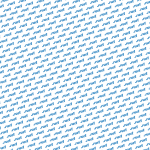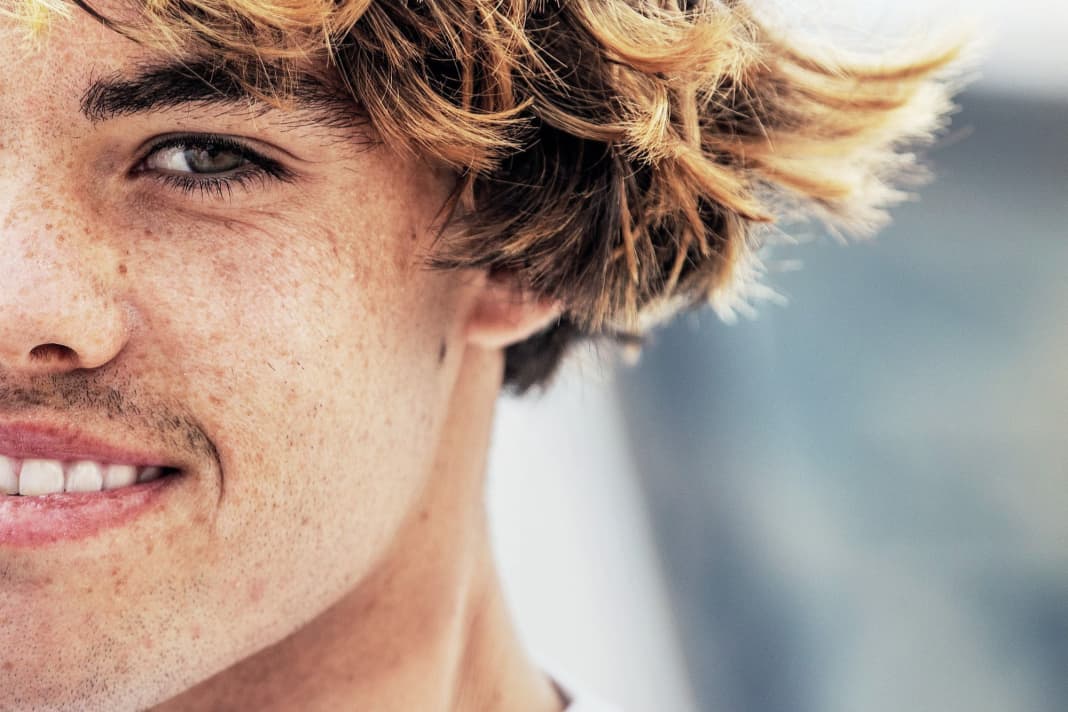





The name Baptiste Cloarec has been mentioned from time to time in the World Cup in recent years. His skills have flashed up here and there, but in the results lists he tends to be at the bottom of the rankings. Spots like Sylt and Pozo are not really his thing. He grew up in the surfing sense - physically he is only 1.67 metres tall - in Brittany. At a spot called Le Dossen, there are conditions on good days that surfers in Pozo or on Sylt can only dream of. Clean, fast-running waves with a cross-offshore wind. Anyone who can't believe this should watch the clip Moghawaii II on Baptiste Cloarec's YouTube channel. After that, you'll no longer wonder why he beat the entire world elite as a no-name at the Wave World in Fiji.
How would you describe yourself?
I don't really know. That I'm a ... (he ponders). I don't know exactly how to describe myself personally. I would say someone who can be persistent, persevering and sometimes a bit stubborn.
And as a windsurfer, what is your style?
You could perhaps say - energetic. I'm actually quite small, only 1.67 metres tall and weigh 62 kg. I'm small, but relatively heavy. I'm the same weight as Thomas Traversa and Camille Juban, who are much taller. So I have a lot of power.
What material did you use in Fiji?
I was travelling with an RRD series board. I mainly used the Hardcore Wave with 70 litres. I mainly had standard sails with me, but also some prototypes.
Do you only surf with series material?
No, no, I also have some prototypes. Because of my size, I have to use small boards and since RRD no longer makes boards under 74 litres - the 70l I used is an old board - I had to have custom boards made for me in Italy by Francisco Pizzocolo in the RRD shaping room. I also have some prototypes for the sails because, compared to my height, I have to lower the boom eye a little to make it easier to put the sail down in the bottom turn. I simply feel more comfortable with it.
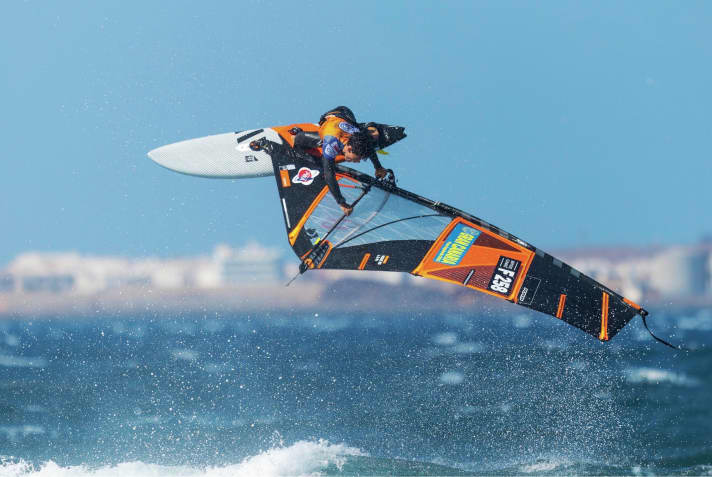
Cloudbreak is very special. How did you adapt to it?
I didn't have any special preparation. But the spot where I surf here in France, in Le Dossen, is very similar to the spot in Fiji. There are no rocks here, so the waves are a little less powerful and easier to ride. But side-off, port and powerful waves are conditions that I like.
What were the biggest challenges for you?
The boats that took us to the spot. You had to be very well organised as the boats were small. Four of us shared a boat, each with two boards and several sails. It was quite complicated as all the equipment was on top of each other and you had to rig the boat with the swell. Then, of course, the wave itself. It's super fast, so you have to have good timing. You can't lose any time and you have to be focussed because if you go too far straight, it's over, you're stuck in the rocks and it takes half an hour to get out again.
How does it feel to come first, ahead of riders like Brawzinho, Victor, Ricardo...?
It's crazy, I don't really realise it yet. I don't really know what I'm doing here. But I'm so happy and they've all congratulated me, which is so cool.
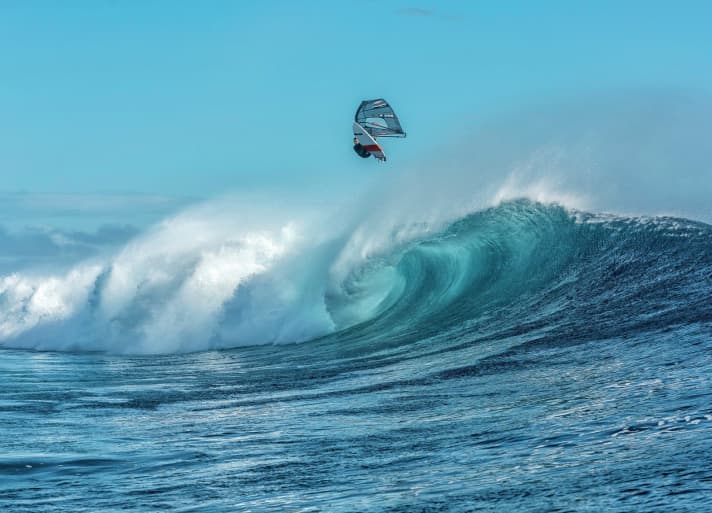
Who are your role models?
I don't know. I don't have many fixed role models. I watch a lot of videos of everyone. Whether they're PWA champions, like Brawzinho, or retired from the tour, like Boujmaa, Jaeger... I watch all their videos and I learn a lot. But I couldn't name one particular rider as a role model.
Cloudbreak has big waves but little wind. Were you used to these kinds of conditions?
I wouldn't say used to it, but I also surf a lot without a sail. I think that helps. These are conditions that you also find here in Brittany. The waves are not as big and not as strong, but it's a bit similar in terms of wind and wind direction. And the speed of the wave is the same. In Le Dossen it's super fast.
What was the daily routine like in Fiji, how long were you on the water?
We had a total of three competition days. There was often no wind until midday and it took an hour by boat to get from the hotel to the wave. The organisation's catamaran took two and a half hours. So we only had small periods of four to five hours for the competition. The time on the water was not very long. We arrived at the spot just before the start and before the competition began, everyone went out on the water to warm up and ride a few waves to familiarise themselves. But with 30 riders in the water at Cloudbreak, you only get one or two waves to warm up, no more. So we didn't spend a lot of time on the water.
How did the heats and the evaluation go?
We had heats of 28 minutes and that wasn't bad. At one point the organisers wanted to go down to 23 minutes because they thought we wouldn't have enough time to finish the competition, but we all agreed that it was better to keep the heats a bit longer because the waves came at long intervals. At the end of the heat, the judges scored your two best waves. The scoring depended a lot on whether you were in the critical zone of the wave or more on the shoulder, whether you would jump aerials or not and whether you did them at the beginning or end of the wave, as there were some spots that were technically very difficult. There were quite a few criteria...
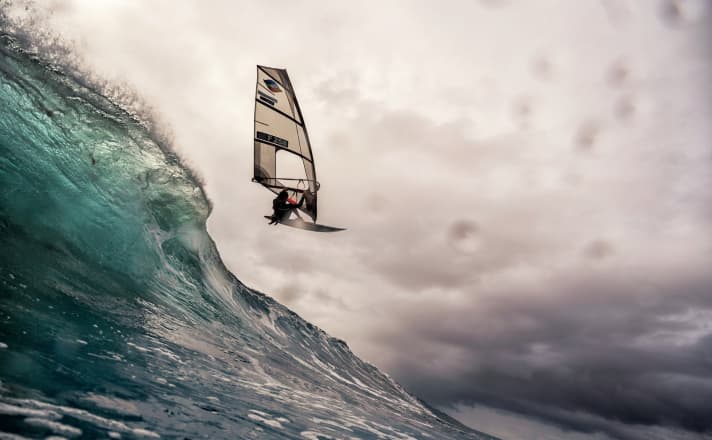
Is there a moment that you particularly remember from this competition?
Just before my semi-final, I was pushed onto the coral by a wave. To be honest, that's one of my worst memories. It was really scary. I smashed everything and was also scared for myself because I was pushed to the bottom of the water, it was scary.
What do you think of the IWT/PWA merger?
Personally, as a young person, I think it's great. You go to magical spots like Chile, Fiji, Peru... These are all incredible places and there must be windsurfing scenes in these places. Sure, the PWA tour is interesting in that it's the bigger events, with more budget, so more media and better organisations. But it's always the same spots and it's always the same people who deliver the best performances there. It's almost impossible for a mainland European to achieve anything on the PWA tour unless you live in the Canary Islands or Hawaii and surf every day at the spot where the contest takes place. Those who live at the spot are very privileged. So if you mix the two tours, there are a lot of new spots where nobody lives, and that makes it fairer.
Did you want to do the whole tour this year?
My goal for this year was to do the stages I've always dreamed of - Chile, Fiji and Peru. But in the end, given my good ranking, I'll still go to the Canary Islands to see how things go there, and we'll see what happens after that, depending on my ranking after the summer.
I believe you are a young officer in the merchant navy. How are you coping with this dual role?
It's true that I attended a merchant navy school. I've finished my time at school and am doing the practical training, which lasts twelve months. I still have six months to go. I'm employed by Brittany Ferries, which is a Breton shipping company that operates between Brittany, England, Ireland and Spain. They are really super cool. They organise it really well so that I can travel to the competitions. And then when I get home, I surf for them. It's by far the best solution I could find and I love what I do.
Have you always wanted to become a professional windsurfer or is it more of a passion?
I don't know if I would call myself a professional, as I still have an officer's job. I never really wanted to be a pro, but despite everything, I feel like I'm getting more and more into it because it's starting to go well. And it's fun, it's a bit of the good life, just surfing, in beautiful places, travelling. It's really very cool.

